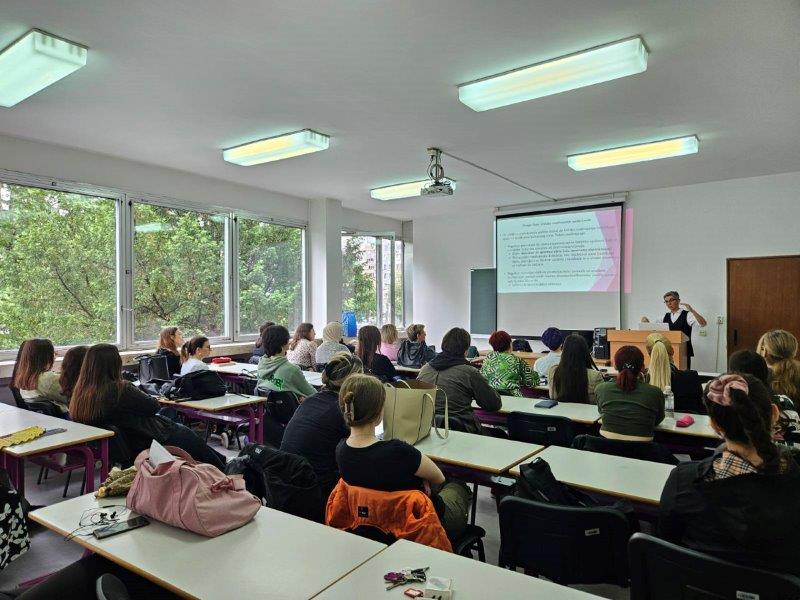At the Faculty of Philosophy, University of Tuzla, on June 3, 2024, Dr. Jadranka Rebeka Anić held a seminar on the anti-gender movement and its impacts on the Balkan countries. The seminar was organized within the UNIGEM project with the aim of empowering teaching staff and the student population.
To understand the mechanisms and strategies of anti-gender movements globally and in Bosnia and Herzegovina, it is essential to understand the concepts of gender, gender ideology, feminism, nationalism, and others.
Dr. Anić mapped out the key historical milestones that facilitated the rise and growth of the anti-gender movement. First and foremost, the International Women’s Conference held in 1995 brought together representatives from the Vatican and the Organization of Islamic Countries, among others, who then formed the so-called “unholy alliance” in the fight against gender equality. Even then, the term gender was deliberately misinterpreted, as were the theoretical insights of Judith Butler, who was accused of denying the body, while in fact, she was only asking for a critical examination of both sex and gender.
Afterward, during the 21st century, political parties and non-governmental organizations used anti-gender rhetoric to achieve their own goals. The public was mobilized, and their attention was directed towards the Other, especially migrants from Africa and Asia, to hide the real causes of the economic crisis that hit Western countries after 2008. However, some right-wing populist parties also used migrants to gain more voters by presenting gender equality as a threat to family, tradition, and religion.
In the Balkans, anti-gender tendencies are most prevalent in Croatia, but also in other countries, as reflected in numerous initiatives that aim to return women to the privacy of the home and supposedly save men.





















